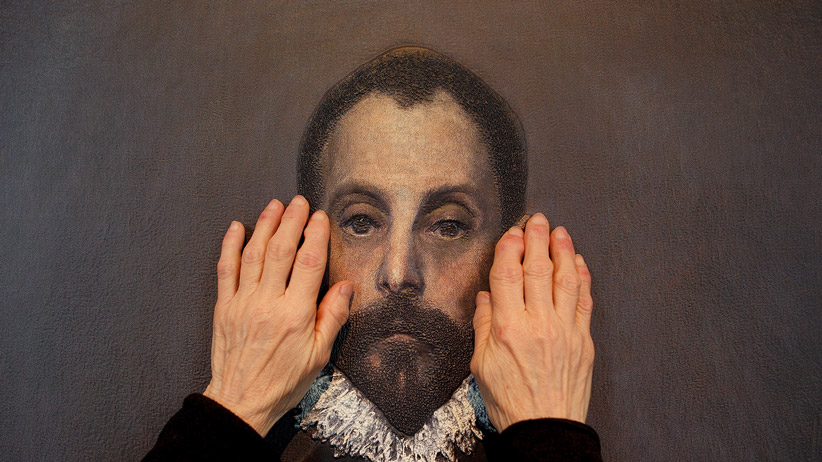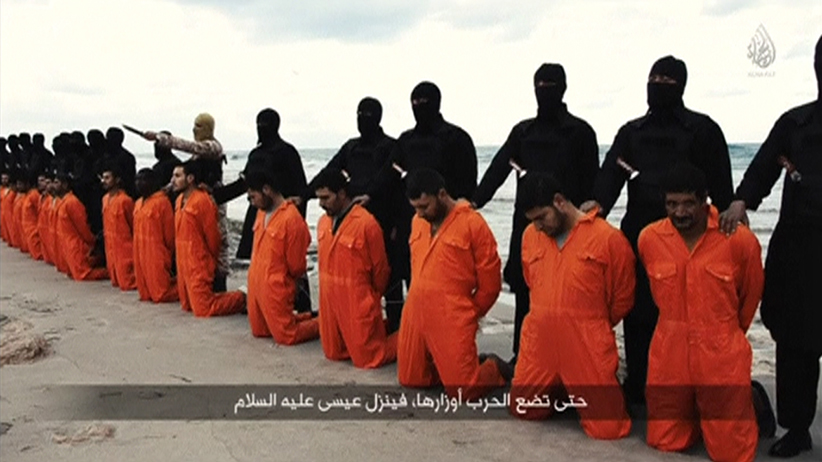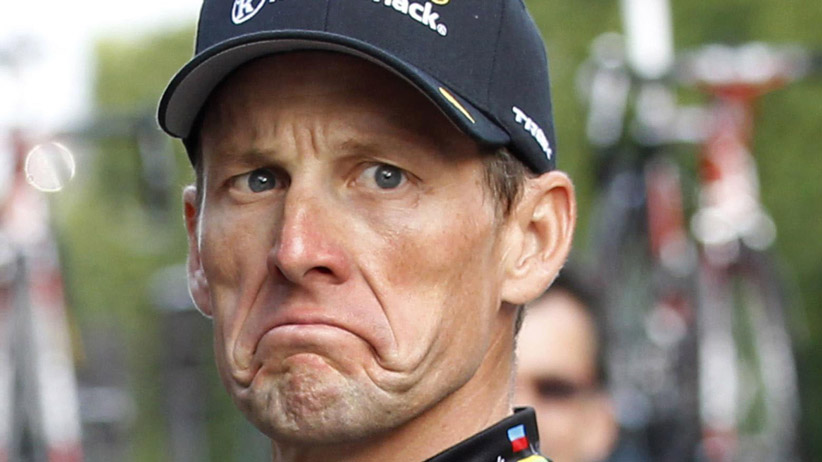The world as we see it
A roundup of victories, tragedies, triumphs, disappointments, and the names making news—good or bad—this week
Canada’s Prime Minister Stephen Harper (C) kicks next to a Bonhomme Carnaval mascot at the Ice Hotel in Quebec City, February 13, 2015. REUTERS/Mathieu Belanger (CANADA – Tags: POLITICS TPX IMAGES OF THE DAY) – RTR4PHFT CREDIT: Mathieu Belanger/Reuters
Share

Good news: A Halifax attack halted
Halifax police foiled a Columbine-style killing spree at a local shopping mall on Valentine’s Day after acting on a Crime Stoppers tip—the most significant ever received through the program. Two suspects in their early 20s have been charged, while a third 19-year-old was found dead in a house in the suburbs. In the wake of recent shooting rampages, in Paris, Ottawa and Copenhagen, it’s heartening to see concerned citizens are working closely with police to help save innocent lives.
Bad news: Mad cow, sad Alberta
Canada’s Food Inspection Agency has reported its first case of mad cow disease (bovine spongiform encephalopathy) since 2011, citing a single Alberta beef cow that never entered the food chain. While trade should not be affected unless the country has 12 cases in a year, that didn’t stop South Korea from suspending its imports anyway. At a time when CIBC is warning of a recession in Alberta amid the crash in oil prices, the last thing Western Canada needs is questions raised about another key export industry.
Good news: Super-charging superheroes on the case
Elon Musk wants to use battery technology from Tesla, his electric car company, to power people’s homes, which, when paired with solar power, promises to take houses off the grid completely. Meanwhile, in another example of expanding corporate horizons, Apple is reportedly working on its own electric car, code-named Titan. Not that Musk is worried: He’s the one who opened Tesla’s patents to competitors in the hopes of accelerating the e-car industry. With two of Silicon Valley’s hottest companies on the case, it’s surely only a matter of time before we’re all living and driving green.
Related: The rise of the electric car—and the fall of the gas station
Bad news: The wrong call
Egyptian-Canadian journalist Mohamed Fahmy, convicted by an Egyptian court of supporting the outlawed Muslim Brotherhood, has been freed on bail after his original verdict was overturned. But hopes are fading he will return to Canada immediately, as it appears he will now undergo retrial on the original charges. Several prominent Canadians, including Rick Mercer, Michael Ondaatje and Stephen Lewis, are calling on Prime Minister Stephen Harper to intervene, but, unfortunately, a call from Harper isn’t what’s holding this up. It’s Egypt’s political and judicial system.
Good news: A cemetery for spies
The Canadian Security Intelligence Service wants its own section of Ottawa’s national cemetery alongside the RCMP, National Defence and Ottawa police. Given the growing importance of shadowy covert work in an age of global terrorism, it makes sense to give the spy agency the chance to honour its employees alongside others who have served Canada—even if CSIS claims none of its members has yet been killed in the line of duty (something that, unfortunately, is bound to change) and even if it’s not totally clear how it would work. For example, would undercover agents have code names engraved on their headstones?

Bad news: Islamic State ups the ante
The Islamic State terror group broke horrifying new ground in Libya by simultaneously beheading 21 kidnapped Egyptian Coptic Christians on a beach, and capturing the gruesome event on video. In response, Egypt bombed Islamic State militants in neighbouring Libya and called on the U.S. and Europe to help battle the threat on its border. Nigeria, too, has asked for U.S. assistance in its fight against Boko Haram, which killed as many as 10,000 people last year in its bid to create an Islamist state. It seems the time has come to heed those calls.
Related: Inside Canada’s new war
Good news: Cholesterol’s not so bad after all
After decades of telling people to avoid delicious, high-cholesterol foods such as eggs and lobster, an influential U.S. advisory panel is recommending that cholesterol no longer be listed as a “nutrient of concern.” While it’s not a done deal, the Dietary Guidelines Advisory Committee’s stance reflects research that says high levels of “bad” cholesterol in your blood isn’t necessarily related to eating a cholesterol-heavy diet. But before you order a big trucker’s breakfast with eggs, bacon and sausage, be warned: Saturated fats are still considered as bad as ever for your heart.
Bad news: Flying a little too high
Canada’s two biggest airlines, Air Canada and WestJet, are more profitable than ever—thanks largely to a host of extra fees and charges, including $25 to check a single suitcase on many flights. In its most recent quarter, Air Canada’s revenue from these so-called “ancillary” sources grew 18 per cent. Meanwhile, both airlines have stubbornly refused to lower airfares, despite falling fuel prices. There’s nothing wrong with making money in a notoriously tough industry, but it’s not as if consumers have much of a choice. Proposed new, ultra-low-cost airlines that would break up the cozy duopoly can’t come soon enough.
Related: Maclean’s A to Z encyclopedia of oil

Check out Macleans.ca for our daily newsmakers series, highlighting the names making waves that day.
Newsmaker: Susan Higashio Weinreich
Weinreich, a 42-year-old grandmother from Vancouver, is one of six Canadians who passed the interview phase for the Mars One project, a plan to send humans on a one-way trip to the red planet in 2024. Weinreich, an experienced hiker and Scout leader for more than 10 years, wore a scouting uniform in her Mars One application video and said, “You can count on me to be prepared.” She will now join 99 other finalists for televised group challenges designed to whittle the talent pool down to 24 final participants in the private $6-billion mission to establish the first human colony in space.
Newsmaker: Lady Gaga
Since only the most over-the-top proposal would be worthy of Lady Gaga, actor Taylor Kinney went all out. The actor, who plays a hunky firefighter in Chicago Fire, presented her with a ring topped by a knuckle-buster of a heart-shaped diamond on Feb. 14. “He gave me his heart on Valentine’s day, and I said YES!” gushed the singer on Instagram. It’s a rare public moment for the duo, who have largely kept their four-year relationship off the red carpets and out of the tabloids.
Newsmaker: Dick Costolo
The CEO of Twitter took some time off from his lucrative duties to go skiing, and broke his collar-bone on the first day of the trip. Naturally, he’s been tweeting photos of his recovery and his gruesome-looking X-Ray. Costolo was already in the news for vowing to fix the epidemic of abuse and invective on his site; hope he’s better at that than skiing.
Newsmaker: Alec Falkenham
Falkenham, a Ph.D. student in pathology at Dalhousie University, has patented a topical cream to remove tattoos, eliciting cheers from those who regret getting inked. The drug painlessly speeds up the natural process that fades tattoos by causing cells called macrophages to digest and carry away cells that contain tattoo ink. The cream has only been tested on mice so far, but, given the prevalence of tattoo remorse and the $70,000 in start-up capital Falkenham has received, human trials may not be far off.
Newsmaker: Lance Armstrong
An arbitration panel ruled that the disgraced cyclist and Tailwind, the company that managed Armstrong’s team, must pay US$10 million to a promotions company. SCA Promotions paid Armstrong and Tailwind approximately US$12 million in bonuses during his career, which included seven Tour de France titles. Ten years ago, Armstrong testified under oath that he never used banned performance-enhancing drugs, but a report from the U.S. Anti-Doping Agency found otherwise, and Armstrong later confessed on Oprah. As the arbitration panel explained in its ruling, “Perjury must never be profitable.”